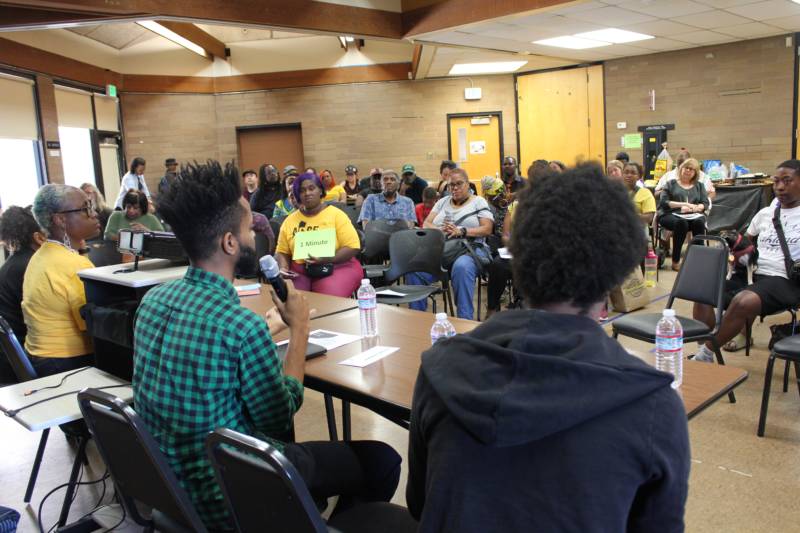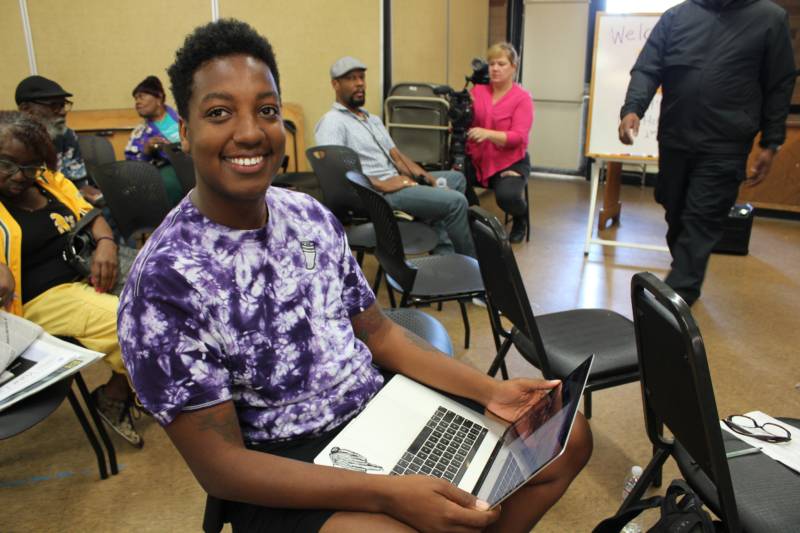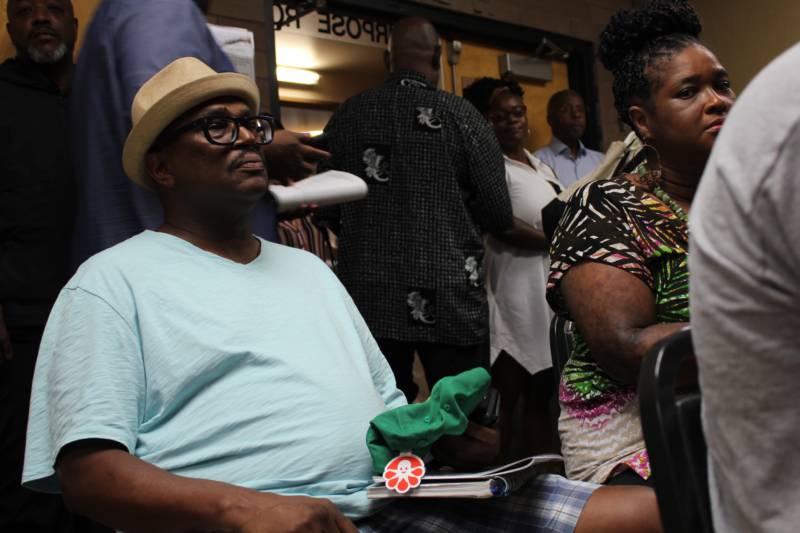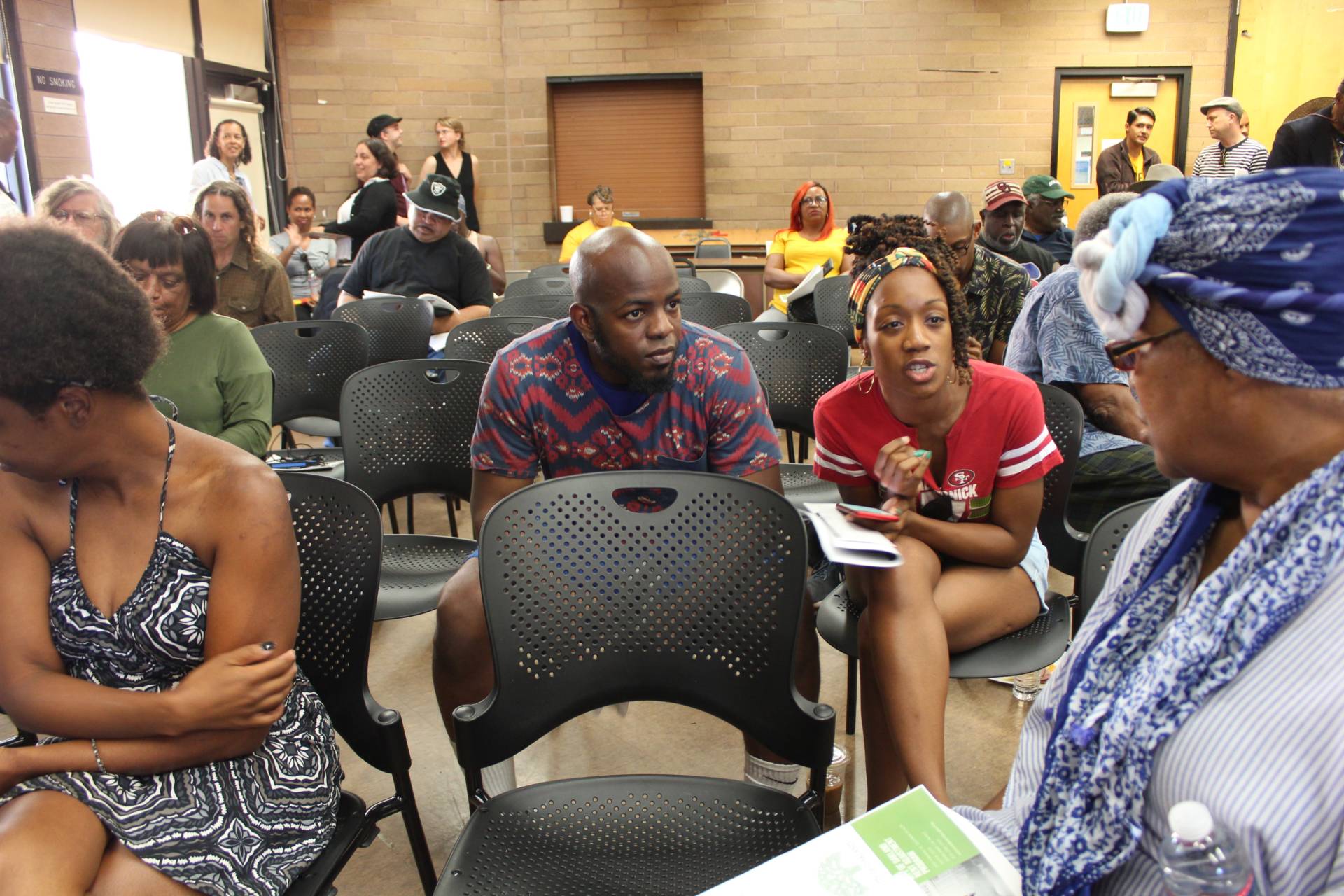The leaders of a local nonprofit that helped push a statewide rent cap through the Legislature this month are now focusing on building an African American housing union in Oakland.
About 100 black residents, city leaders and advocates gathered at the West Oakland Branch of the Oakland Public Library on Saturday to discuss ways to fight displacement. It was the second town hall this summer. The first was held in May.
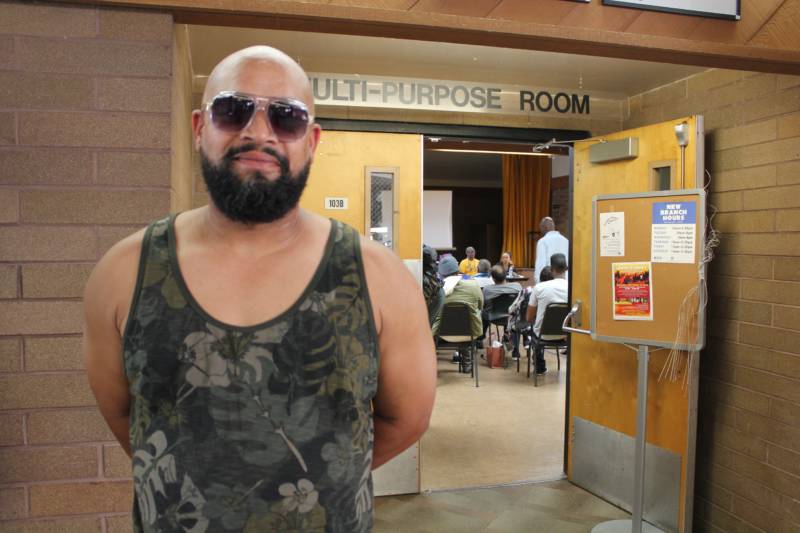
Standing outside the door of the packed room, local resident Maurice Hedgepeth said he came because he has a good job as a truck driver but can’t see himself owning a home where he grew up.
“I was just hoping to hear that they were walking down the path of solutions that can help get a lot of us out of this problem,” said Hedgepeth.
The meeting focused on educating people about housing rights, including a presentation from the city’s Rent Adjustment Board about what sorts of rent hikes are allowable and how to arbitrate illegal increases.
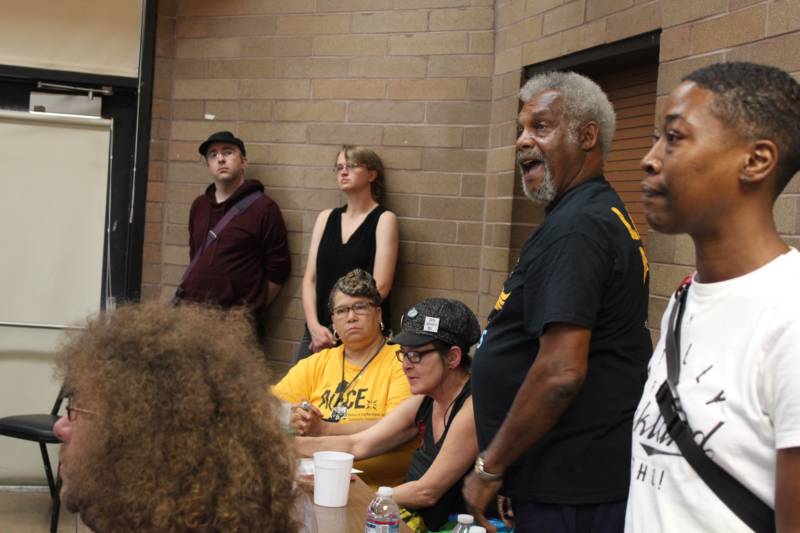
It also focused on the housing discrimination black folks have historically faced in Oakland — such as redlining — with the ultimate goal of mobilizing those who are impacted.
That included informing attendees about strategies that are already at play. For example, the Oakland Community Land Trust “removes land from the speculative market so that it serves low-income residents forever.” It is among the organizations that will benefit from $12 million allocated in this year’s city budget to create a municipal fund supporting such trusts and limited equity housing cooperatives.
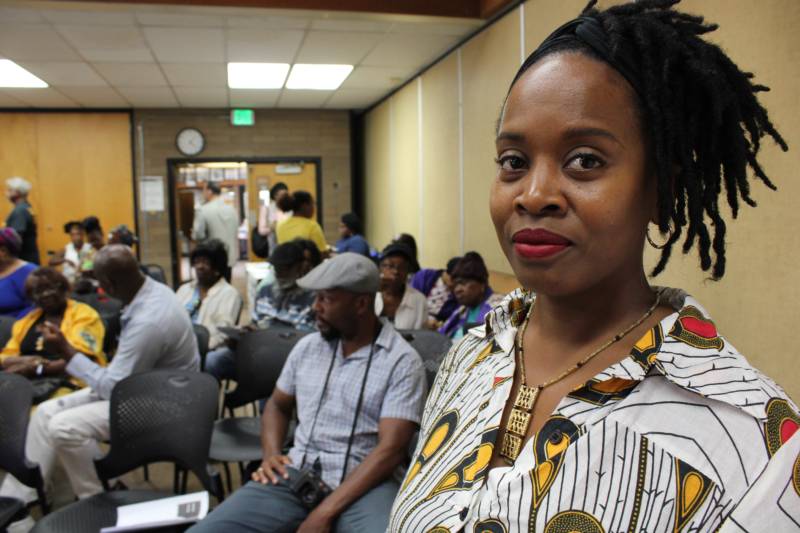
“We want to see a group of people who are ready to activate around policy changes, and folks who are willing to put their bodies on the line to do direct action the way that we do it,” said Carroll Fife, director of the Oakland Alliance of Californians for Community Empowerment, which organized the event.
ACCE Oakland said it already has an anti-displacement chapter that meets every Thursday, as well as East and West Oakland chapters that meet twice a month.
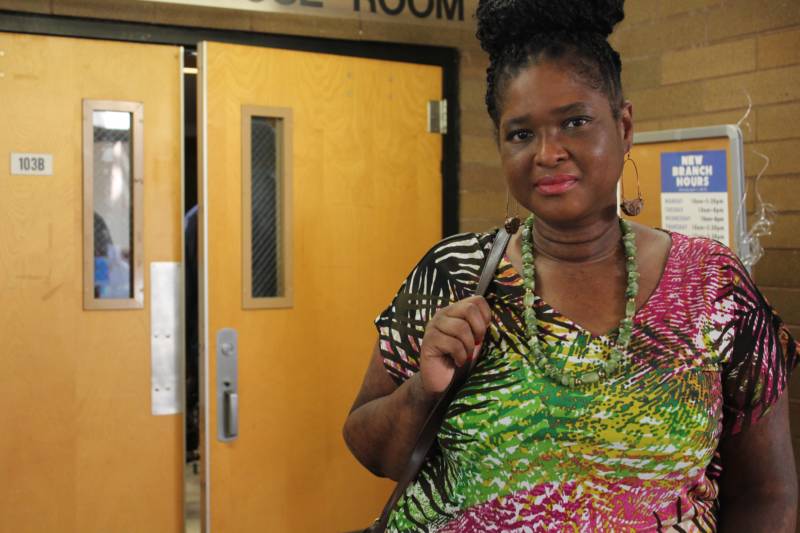
“It was worth coming out,” said RocQuel Johnson, who still works downtown despite being pushed out of Oakland. “We need to get out and really start knocking on some doors.”
The nascent Black Housing Union is a subcommittee that will look at how housing issues impact the black community and support homegrown solutions. A number of ACCE affiliates statewide are looking at expanding the Black Housing Union to other California cities.
